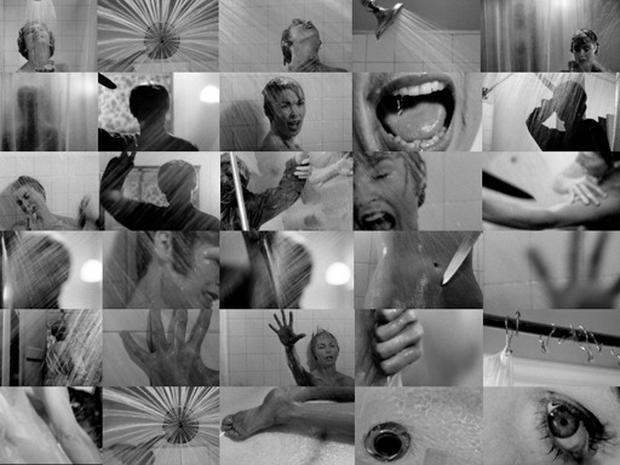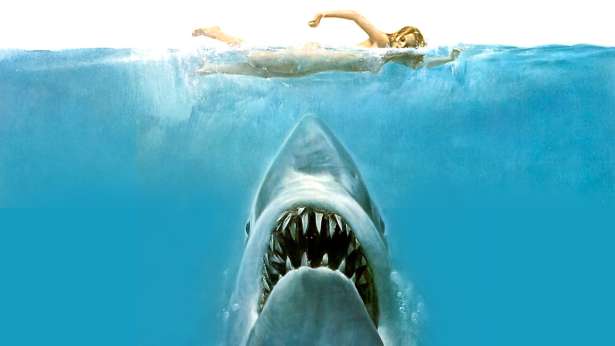
Thursday, October 18, 2018
Monday, October 15, 2018
Wednesday, October 10, 2018
Wednesday, October 3, 2018
Monday, October 1, 2018
Romantic Comedy Assessment
Everyone has to fill out a plotline (here is an explanation, here is a blank sheet to hand in)
From there, you can write a short scene (screenplay) OR create a storyboard
DUE WEDNESDAY
Thursday, September 27, 2018
500 Days of Summer
As we continue with our unit on Romantic Comedy, here are some things about When Harry Met Sally:
Notes on how it fits into the "romantic comedy mold"
7 Ways When Harry Met Sally Would be Different Today
Time article on the relevance of the film
Moving on, let's look at 500 Days of Summer (our Viewing Guide) and how that film both fits into AND breaks the conventions of the "Romantic Comedy."

Notes on how it fits into the "romantic comedy mold"
7 Ways When Harry Met Sally Would be Different Today
Time article on the relevance of the film
Moving on, let's look at 500 Days of Summer (our Viewing Guide) and how that film both fits into AND breaks the conventions of the "Romantic Comedy."

Tuesday, September 25, 2018
Romantic Comedy
- What films do you consider "Romantic Comedy?"
- What quality do many of these films possess that make them “Romantic Comedies?”
- What things show up again and again?
- What kinds of characters do we see? How do they interact with each other?
- What happens in the plots?
- What are the settings?
Other fun stuff...
- Here's a great video that counts down the top 10 Romance Cliches
- Every best friend cliche rolled into one scene (from the romantic comedy parody They Came Together)
- How do men talk about relationships in Rom-Coms? Over sports...
Thursday, September 20, 2018
Shining Essay
The Shining has provided film scholars, students, and critics with material for analysis for over 30 years. Hundreds of theories and topics have been explored, and many more will probably surface at some point…but what is the true meaning behind the film? What was Kubrick trying to achieve? No one will ever truly know (Kubrick was very secretive and tight-lipped), but that is what makes the film so great—it keeps us guessing, discussing, and analyzing.
Your assessment for the film is a five-paragraph essay that explores some aspects of the film and what they mean. What themes does Stanley Kubrick communicate with the film, and how does he communicate those messages to the viewer?
We have discussed and taken notes on many things, and it is impossible for you to cover everything we have gone over…but that’s okay. The goal of the assessment is for you to demonstrate your ability to write about film analytically.
To help you choose what exactly to write about, here are some highlights of what we went over:
Motifs…
· Mirrors/Reflection
· Labyrinths
· Native American Patterns
Filmmaking Techniques…
· Extreme camera angles
· Extreme wide-angle lenses
· Symmetrical framing/composition
· Long tracking and steadi-cam shots
· Slow pacing
· Effective use of sound/music
· Extreme camera angles
· Extreme wide-angle lenses
· Symmetrical framing/composition
· Long tracking and steadi-cam shots
· Slow pacing
· Effective use of sound/music
Themes…
· Effects of Isolation and Claustrophobia
· Nature of Madness
· Detrimental Effects of Alcoholism and Abuse
· Fear and Horror
· Supernatural
The most important thing to figure out first is a thesis. Your thesis should somehow incorporate the question posed to you. Something along these lines: In The Shining, Stanley Kubrick shows ________________________ through his use of ______________________, ______________________, and ______________________.
From there, you can shape your essay accordingly, each body paragraph exploring a different way Kubrick achieves ______________________. Follow the sample outline I have provided, and be sure to ask any and all questions you may have! If you share it on Google Docs, I can provide feedback as you write. Good luck and have fun!
· Effects of Isolation and Claustrophobia
· Nature of Madness
· Detrimental Effects of Alcoholism and Abuse
· Fear and Horror
· Supernatural
The most important thing to figure out first is a thesis. Your thesis should somehow incorporate the question posed to you. Something along these lines: In The Shining, Stanley Kubrick shows ________________________ through his use of ______________________, ______________________, and ______________________.
From there, you can shape your essay accordingly, each body paragraph exploring a different way Kubrick achieves ______________________. Follow the sample outline I have provided, and be sure to ask any and all questions you may have! If you share it on Google Docs, I can provide feedback as you write. Good luck and have fun!
Tuesday, September 18, 2018
The Shining Analysis
There are an infinite number of websites and articles that analyze The Shining. It would take a lifetime to comprehensively read all of it. I have attempted to compile a list of the most legitimate resources out there…
What I’m asking you to do, is not to fully read everything (that would still take forever), but rather skim, and see what interests you. After narrowing down the pages that interest you most, then read a little closer and take some notes. Use the “Shining Web Notes” sheet to take your notes. You should evaluate/read at least three different websites. The endgame will be an essay analyzing The Shining, so make sure to take down notes that will help support your analysis.
Exhaustive, deep analysis:
What I’m asking you to do, is not to fully read everything (that would still take forever), but rather skim, and see what interests you. After narrowing down the pages that interest you most, then read a little closer and take some notes. Use the “Shining Web Notes” sheet to take your notes. You should evaluate/read at least three different websites. The endgame will be an essay analyzing The Shining, so make sure to take down notes that will help support your analysis.
Exhaustive, deep analysis:
- Rob Ager: Broken down by chapter and very extensive, some theories hold water...some are a little suspect.
- Juli Kearns: While Ager’s website deals more with themes, this one concerns itself more with the film form. It includes shot-for-shot analyses, and really breaks down the filmmaking techniques.
- Andy Buckle: A nice, compact essay that incorporates some of the better information/analysis from the above sites.
- Justin Morrow: Pretty thorough look that compares the book and film.
- Richard T. Jameson from Film Comment : Film review from 1980--when the film came out. Different than other reviews in that it is from a scholarly film magazine.
- Meredith Danko: 25 things you might not know about the Shining; some cool trivia.
- Lee Unkrich: Fan site that links a lot of cool videos relating to the film (fun fact-he directed Toy Story 3).
- The Shining is actually about the moon landing being staged by Kubrick
- The film is about the US Government's genocide of Native Americans.
- What if The Shining was a romantic comedy?
- Or re-enacted by bunnies in 30-seconds?
- Or spoofed in the Simpsons?
Thursday, September 13, 2018
The Shining
"Masterpiece of Modern Horror"
| Typewriter from The Shining' Stanley Kubrick exhibit at EYE Filminstitut Netherlands, AmsterdamMarcel Oosterwijk from Amsterdam, The Netherlands - All work and no play makes Jack a dull boy (The Shining) |
Check out some full notes on the film, which is based on a Stephen King novel of the same name. The viewing guide is comprehensive...Stay focused!
Wednesday, September 12, 2018
Psycho Assessment

Today is our assessment for Psycho. This involves watching three scenes from the film; your task is to write a paragraph on each. Remember what makes a solid analysis paragraph: Topic sentence, evidence, concluding sentence. This will be graded using the adapted (film-specific) school-wide writing rubric. I have also provided a solid example of an analysis paragraph. You may use the viewing guide and any notes you have taken for the film.
Tuesday, September 11, 2018
Psycho Analysis

As we continue to go through the viewing guide for Psycho, we will also look at excerpts from a famous interview with Hitchcock. This interview was conducted by the French filmmaker Francois Truffaut (who ushered in what is called the “French New Wave” with his first film The 400 Blows).
Friday, September 7, 2018
Psycho
Alfred Hitchcock's classic Psycho:
- Check out some notes on Hitchcock; a more comprehensive look at him can be found at "TV Tropes."
- The man is iconic, and one of the most important figures in film history. He was also extremely charismatic, which helped audiences connect with him.
- Here is a nice little clip that analyzes Hitchcock's view on suspense.
- HERE is our viewing guide for the film, which we will go over exhaustively after watching the film.
Tuesday, September 4, 2018
Short Films
First on the agenda, wrap up talk of terms with diagetic and non-diagetic elements, especially in regards to sound and music.
To get used to responding to film in an analytic way, we will practice note-taking. While plot is important (it provides a basis for understanding the story), we want to focus on the film form. Remember those film terms we went over? Take notes on things like lighting, camera movement, colors, sound, music, and editing. From there, (after viewing) we try to go a little deeper--what was the filmmaker trying to achieve? What is s/he saying?
Use the handout to take notes. After we watch four films, there will be an assessment where you choose one film and write a paragraph answering this question: What is the filmmaker trying to achieve and how does s/he achieve it?
To get used to responding to film in an analytic way, we will practice note-taking. While plot is important (it provides a basis for understanding the story), we want to focus on the film form. Remember those film terms we went over? Take notes on things like lighting, camera movement, colors, sound, music, and editing. From there, (after viewing) we try to go a little deeper--what was the filmmaker trying to achieve? What is s/he saying?
Use the handout to take notes. After we watch four films, there will be an assessment where you choose one film and write a paragraph answering this question: What is the filmmaker trying to achieve and how does s/he achieve it?
Friday, August 31, 2018
Film Terms and Cinematic Language
As we move forward with beginning to look at the film form ("Formal Analysis"), it's important to be familiar with the form itself. We need a base shared language from which to start. That's where "Film Terms You Should Know" comes into play.
This will be quizzed next week. But before we can really dive into watching films, we have to go through and learn these terms. I've created a slide show to go along with this list, and that is what we will be going over the next couple of days.
This will be quizzed next week. But before we can really dive into watching films, we have to go through and learn these terms. I've created a slide show to go along with this list, and that is what we will be going over the next couple of days.
Wednesday, August 29, 2018
Film Analysis Day One!

Welcome to Film Analysis with Mr. Bujold! My hope is that you come out of this class with a deeper understanding of the film form, and the ability to look at films with a more critical eye. This blog will serve as a place for you to get handouts, find links to fun things, and get the daily agenda. Go to the "Units/Handouts" tab to download any documents I hand out in class.
Today's Agenda:
- Fill out "Get to know you" sheet
- Go over the expectations/syllabus/permission slip
- Accessing prior knowledge: What do you know about the technical aspects of film?
- Class Brainstorm
- What are the qualities of a "great" movie?
- What are some of your favorite movies?
- If there is time: "Looking at Movies" DVD-"Film Analysis" (15 minutes)
Subscribe to:
Comments (Atom)

